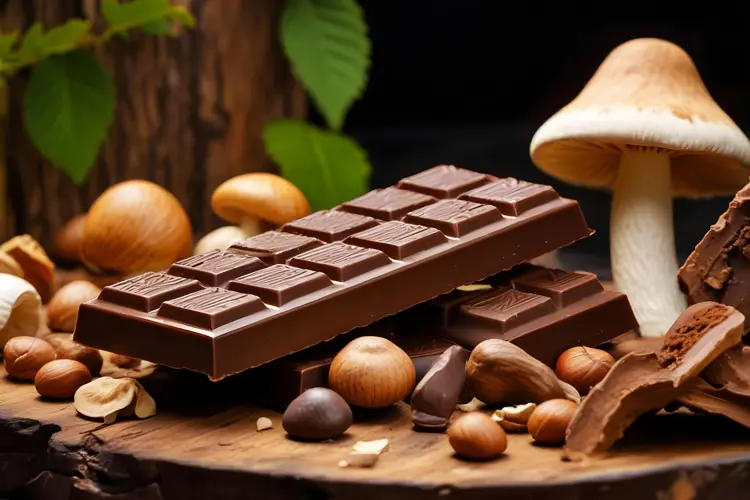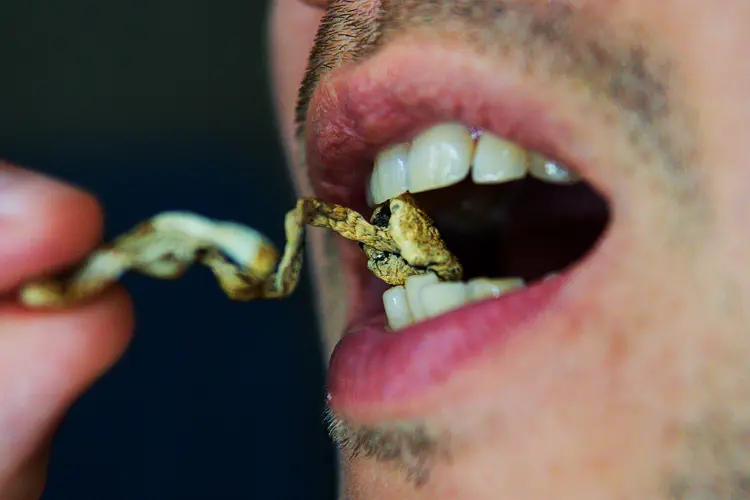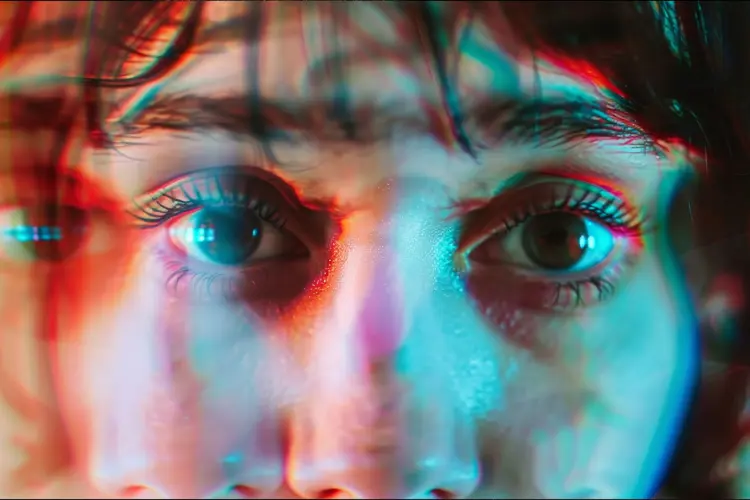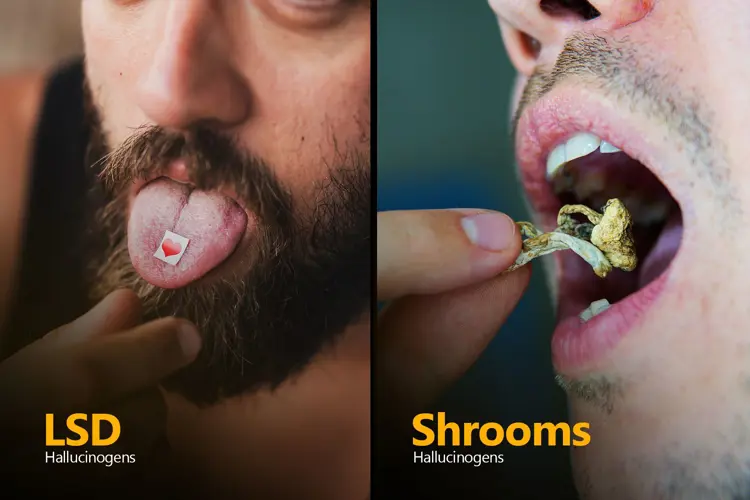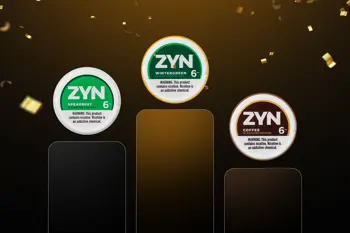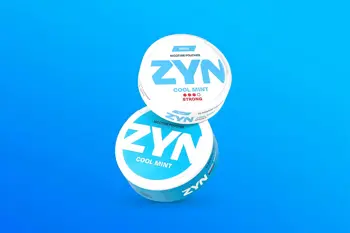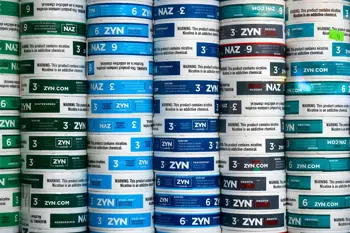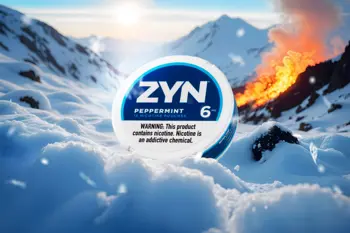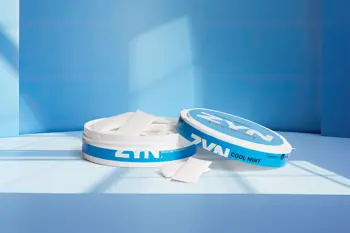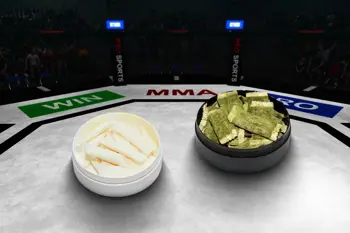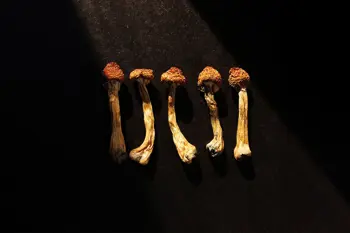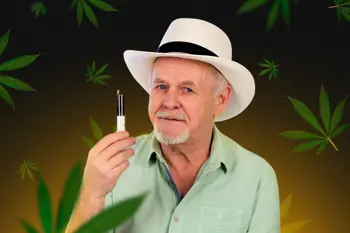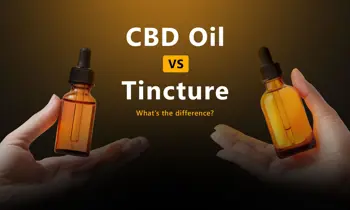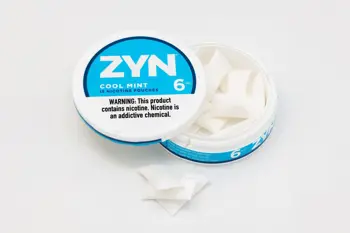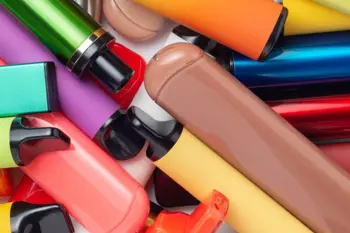Humans have used hallucinogenic mushrooms ceremonially and medicinally for thousands of years, well before the countercultural movement of the 1960s made them popular in modern Western cultures.
That doesn’t mean the law is on their side. Mushrooms containing the drug psilocybin have been banned in the United States since 1968 and were listed as a Schedule I controlled substance in 1970.
Despite being illegal, though, psilocybin remains popular. Legal alternatives are also capturing public attention, especially the Amanita muscaria mushroom species, another hallucinogenic mushroom.
Both psilocybin and Amanita fall under the “magic mushroom” (or “shroom”) umbrella, although they’re not closely related, and don’t necessarily create the same effects. And neither of the popular shrooms has much in common with marijuana or hemp-derived cannabis products.
The use of magic mushrooms is experiencing something of a renaissance, with some localities decriminalizing possession and encouraging research on the hallucinogens’ medical benefits.
Here’s what to know before exploring shroom products like chocolate bars.
What are shroom chocolate bars?
The name says it all: traditionally, they’re chocolate bars containing psilocybin-rich mushrooms, usually from the genus Psilocybe. Psilocybin is the compound responsible for the trademark psychedelic effects of magic mushrooms (shrooms).
Psilocybin itself isn’t technically hallucinogenic. The body first needs to convert it into its active metabolite, psilocin. Consuming pure psilocin—if it were available—could get you high faster and produce milder side effects.
Amanita muscaria mushrooms (sometimes called fly agaric or fly amanita) are a more recent trend in the modern mushroom world. Amanita muscaria is rich in ibotenic acid, a neurotoxic chemical, and precursor to the hallucinogenic substance muscimol. When Amanita mushrooms are dried, the ibotenic acid is decarboxylated and converted into muscimol, which is what gets users high.
Manufacturers make and sell chocolate bars containing both common shrooms, but while Amanita products are federally unregulated and generally legal to sell, psilocybin sales remain illegal federally. Some retailers, however, are walking a legal tightrope and selling them anyway.
Amanita vs. psilocybin: what’s the difference?
While it's treated as an alternative to psilocybin and old-school psychedelics, Aamanita technically has more in common with a different category of hallucinogens: atypical deliriants. You’re more likely to achieve a dreamlike haze with Amanita than you are to have a lucid trip.
Legality is one of the biggest distinctions between Amanita mushrooms and psilocybin. Muscimol is legal in 49 states, while psilocybin is a Schedule I controlled substance. It’s only been recreationally legalized in one state, with a growing number of cities decriminalizing possession, but not sales. Basically, psilocybin is illegal unless you live in Colorado or one of a handful of countries.
Amanita does raise questions about safety. The side effects are usually mild and dose-dependent, but it’s still a poisonous mushroom. In fact, both kinds of mushrooms can have some unpleasant effects.
Legality of shroom chocolate bars
Is Amanita muscaria legal?
For now, the legality of Amanita muscaria is less muddled than it is with psilocybin.
Muscimol, the psychotropic chemical in Amanita muscaria mushrooms, isn’t a controlled substance in the United States. However, it is pending FDA review, which means that American users should keep a close eye on its standing.
Louisiana is the only state that has banned Amanita muscaria. Residents can possess Amanita for ornamental reasons, but it’s illegal to use or sell the mushroom as a hallucinogen.
Beyond that, a handful of countries have already banned muscimol:
- Australia
- Romania
- The Netherlands
Play it safe and review your country’s laws on muscimol and hallucinogenic substances before making a purchase. Some are stricter than others.
Is psilocybin legal?
It’s complicated. Psilocybin is illegal or restricted in most places across the world. It remains a Schedule I drug in the United States, alongside addictive substances like heroin.
Enforcement differs, and magic mushrooms have been decriminalized in several U.S. cities, though Colorado is the only state to legalize them. Still, while Colorado residents over 21 can grow or give away shrooms, they can’t sell or trade them. Sale is illegal and could lead to fines or prison time.
Shrooms aren’t recreationally legal in Oregon, but supervised use with a licensed facilitator is allowed.
Despite its legal status, there is a robust U.S. psilocybin black market. You can now even buy psilocybin chocolate at some smoke shops.
Be cautious, however. Legitimate psilocybin might be out there, but so are dangerous knock-offs. Regulations won’t exist until psilocybin is legalized. Meanwhile, without third-party testing that proves the product is actually psilocybin, you might be consuming almost anything.
What are the effects of shrooms?
Their effects aren’t exactly the same, but Amanita and psilocybin mushrooms are both hallucinogenic. Psilocybin is a true psychedelic, while Amanita is a deliriant (or even a hypnotic).
Psilocybin and muscimol target different receptors in the brain. Both ramp up serotonin production, though psilocybin binds to serotonin receptors directly, and Amanita mushrooms target GABA-A receptors. This gives muscimol its sedative effects, while psilocybin tends to be excitatory.
Speaking of which, psilocybin’s common effects include:
- Altered perception
- Visual and/or auditory hallucinations
- Mood changes
Psilocybin can cause users to lose their sense of time and space. Users may experience what’s known as a “mystical experience,” entering a dreamlike state where they might relieve memories or have visions.
While Amanita muscaria can have similar effects, they aren’t typical. Hallucinations mainly occur at very high doses. Think of it this way: psilocybin is psychedelic, while muscimol is psychotropic. It’ll give you a dreamy, hazy high, but full-blown trips aren’t as common.
Shrooms can have a powerful effect on the brain, and while many people seek out these experiences, others find them unnerving—which is why both drugs should be dosed carefully. Large doses can be overwhelming.
Do shrooms have side effects?
Hallucinogens aren’t for everyone. If you’re prone to adverse reactions, consider lowering your dose, taking shrooms in a controlled (or more comfortable) setting, or even quitting altogether. Either way, the usual drug adage applies: start low and go slow.
Milder side effects include nausea, vomiting, headaches, and dizziness. A more serious reaction to muscimol or psilocybin might include:
- Paranoid delusions
- Rapid heart rate
- Elevated blood pressure
- Intense negative emotions (including terror)
- Tremors or numbness
Here’s the bright side: despite the risk of side effects, true psilocybin has low toxicity. Even overdoses tend to be mild, and the chemical alone hasn’t been linked to life-threatening reactions. However, a bad trip can lead to injury of yourself or others. You could also be at risk if you have underlying conditions like breathing or heart problems.
Muscimol risks are similar, but there’s a caveat: Amanita muscaria is a poisonous mushroom. That said, poisonings are almost never life-threatening, and its toxicity is highly dose-dependent. However, severe adverse reactions can still require medical treatment.
Black market products are a completely different (and far more dangerous) story. You don’t know what they contain and shouldn’t take every manufacturer's word for it. There’s no way to predict side effects when you don’t know what you’re taking.
Do shrooms have any benefits?
Aside from recreational use, psilocybin is undergoing extensive research for therapeutic use.
Some of psilocybin’s most promising uses are:
- Mental health treatment: Magic mushrooms seem to have anti-anxiety and anti-depressant effects; they could even be useful in therapies for treatment-resistant depression.
- Pain management: Microdosing (or taking small amounts of) psilocybin could help manage chronic neuropathic pain.
- Headache treatment: Specifically, psilocybin might benefit people suffering from highly painful cluster headaches.
On the flip side, psilocybin could worsen certain mental health symptoms. Stay away from psychedelics if you have schizophrenia or a personality disorder.
Don’t buy psilocybin chocolate bars if you want the therapeutic benefits of shrooms. Carefully dosed, pure psilocybin is called for in medical applications. Black market products are far more likely to harm your health than they are to improve it—and may not even contain real psilocybin.
Then there’s Amanita muscaria. Its potential benefits and therapeutic uses are similar, and include:
- Pain management: Muscimol may help reduce inflammatory and neuropathic pain.
- Epilepsy treatment: Since it interacts with GABA-A receptors, muscimol could have anticonvulsant properties.
- Improved cognitive function: Amanita mushrooms may impact activity in the brain’s prelimbic cortex, which helps with decision-making.
Muscimol could also be just as useful as psilocybin in managing symptoms of mental health or substance use disorders—though it's likely better for anxiety, not depression.
Are Amanita and psilocybin safe?
First, steer clear of any mushroom products that fail to disclose what they contain. You’re venturing into a rocky side of the wellness market as it is.
Muscimol and psilocybin aren’t deadly, but plenty of other mushrooms and fungi are. Care needs to be taken when manufacturing these products, and not every manufacturer is doing a great job at that.
In June 2024, there was a CDC recall of one brand’s shroom products after over 100 users became ill, 42 of whom were hospitalized; two may have died from consuming the products. The recalled brand claims that their products contain a “proprietary blend” of mushrooms.
Safety of Amanita muscaria
You'll find over 600 mushrooms under the Amanita genus, some of which are highly toxic or deadly. Amanita muscaria and muscimol sit well outside the “deadly” category, but they’re still considered poisonous, especially at high doses.
Muscimol poisoning is generally mild. You could deal with temporary gastrointestinal upset or an overexcited central nervous system, including symptoms like disorientation or visual disturbances. These effects usually clear up within 24 hours.
Fatal poisonings from Amanita muscaria are almost unheard of. They’ve been reported in historical newspapers and journals, but it’s unclear whether any recent cases exist.
Consuming large amounts of raw Amanita muscaria isn’t safe. In one case, a man fell into a three-day coma after consuming half a kilogram worth of the fungus.
Safety of psilocybin
As it exists now, the U.S. market is messy at best. Psilocybin is federally illegal and unregulated. Even where it’s decriminalized, you can rarely verify what you’re getting in edibles. Certain “psilocybin” chocolate bars only contain THC, while other brands use synthetic drugs.
We don’t recommend buying any black-market psilocybin products.
True psilocybin itself is a different story. It has psychological and behavioral risks but isn't considered addictive or highly toxic. Despite being a Schedule I drug, magic mushrooms don’t appear to be dangerous—unless you take too much or have a bad trip. Avoid hallucinogens if you’re prone to negative effects.
The first reported case of acute kidney injury from magic mushrooms wasn’t published until 2019, and even the researchers note that they have “relatively few” adverse effects. This was also a secondary case in which the 15-year-old patient made a full recovery.
What’s the difference between shrooms and THC?
For simplicity’s sake, when we say “THC,” we’re talking about its delta 9 form—the primary psychoactive ingredient in marijuana. Hemp-derived delta 8 THC is similar, but has milder effects.
Psilocybin is a psychedelic. Amanita isn’t, but can produce somewhat similar effects (especially at higher doses), while THC is much milder than both. It’s not psychedelic and generally doesn’t cause hallucinations or a sense of unreality.
THC is psychotropic and can distort someone’s sense of time and reality at high doses. If that’s not the type of session you’re after, be sure to stay on top of dosing. Someone who’s extremely sensitive to THC could also have a bad experience. Cannabis products aren’t for everyone.
Beyond their effects, all three of these substances interact with different receptors in the body. They don’t have the same impact on the brain.
How do shrooms compare to other hallucinogens?
Not all hallucinogenic drugs are created equal. LSD, shrooms, and ketamine share similar effects (namely altered perception), but their uses and sources differ. Both LSD and psilocybin are psychedelics, while Amanita is a deliriant (or hypnotic). Ketamine is a dissociative drug, and unlike shrooms and LSD, it can be physically addictive.
Unlike shrooms, LSD’s origins aren’t natural. It’s a synthetic chemical made from lysergic acid (the “LS” in “LSD”), found in the ergot fungus. It doesn’t exist in nature without modification by humans.
Shrooms are already psilocybin- or muscimol-rich and grow across the world, even without cultivation. Ketamine-related compounds are rare in nature.
Despite their unique origins, the effects of LSD are closest to psilocybin. A 2022 study found that their subjective effects are almost identical, despite LSD experiences lasting longer. And while LSD has a significant impact on heart rate, psilocybin seems to target blood pressure for the most part. Interest in LSD’s therapeutic side has also been growing.
LSD is an illegal Schedule I drug in the U.S. (like psilocybin), while ketamine is used medically as an anesthetic. It’s a Schedule III drug and isn’t legal for recreational use.
Will shrooms show up on a drug test?
Maybe, but not usually. Pre-employment urinalysis isn’t designed to catch hallucinogenic drug use. It’s not a part of standard drug panels, though tests do exist to specifically screen for these drugs.
The body processes psilocybin faster than THC and other detectable drugs. It's swiftly broken down into psilocin, psilocybin’s active form, before being flushed out. Neither substance is detectable in urine beyond about 24 hours.
But you never know exactly what black market products may contain. They could contain THC, PCP, or synthetic hallucinogens like DMT. If you’re at all worried about passing an upcoming drug test, avoid psilocybin chocolate bars.
Amanita products bought online or at smoke shops are iffy. Reliable sellers are out there, but these products are unregulated, and you can’t always verify what you’re buying. It’s better just to play it safe and avoid all shroom products (legal or not) before a drug test.
